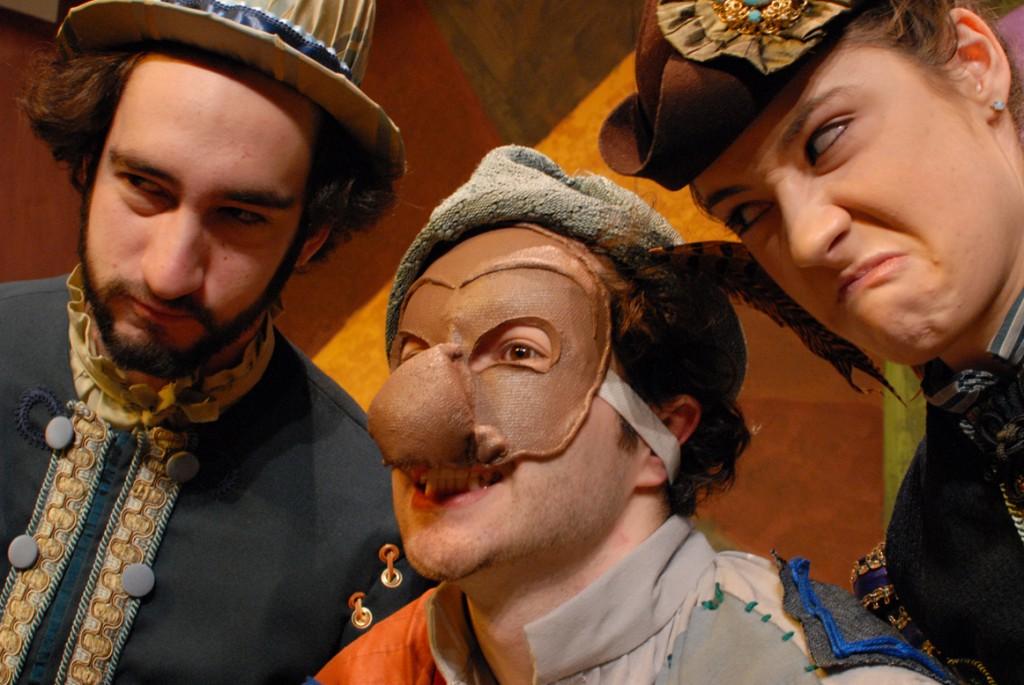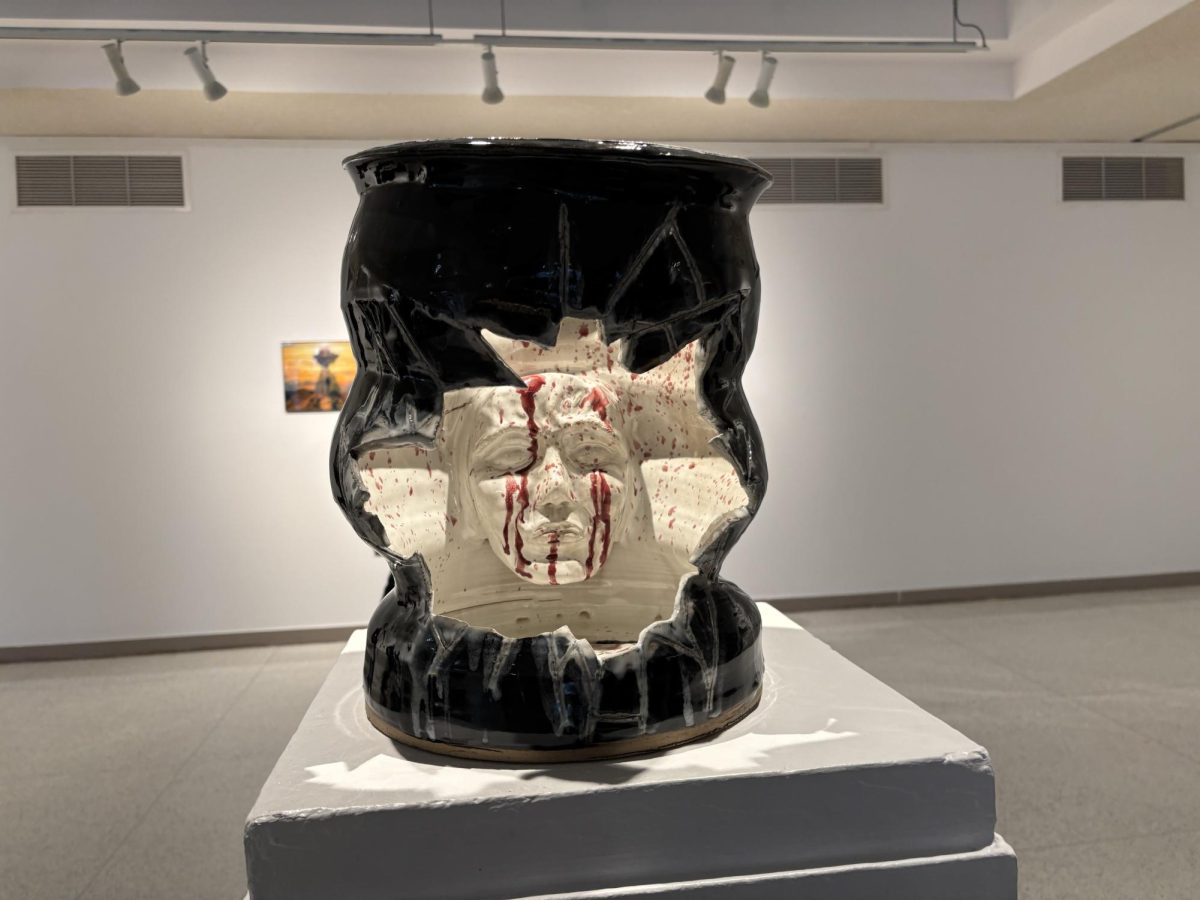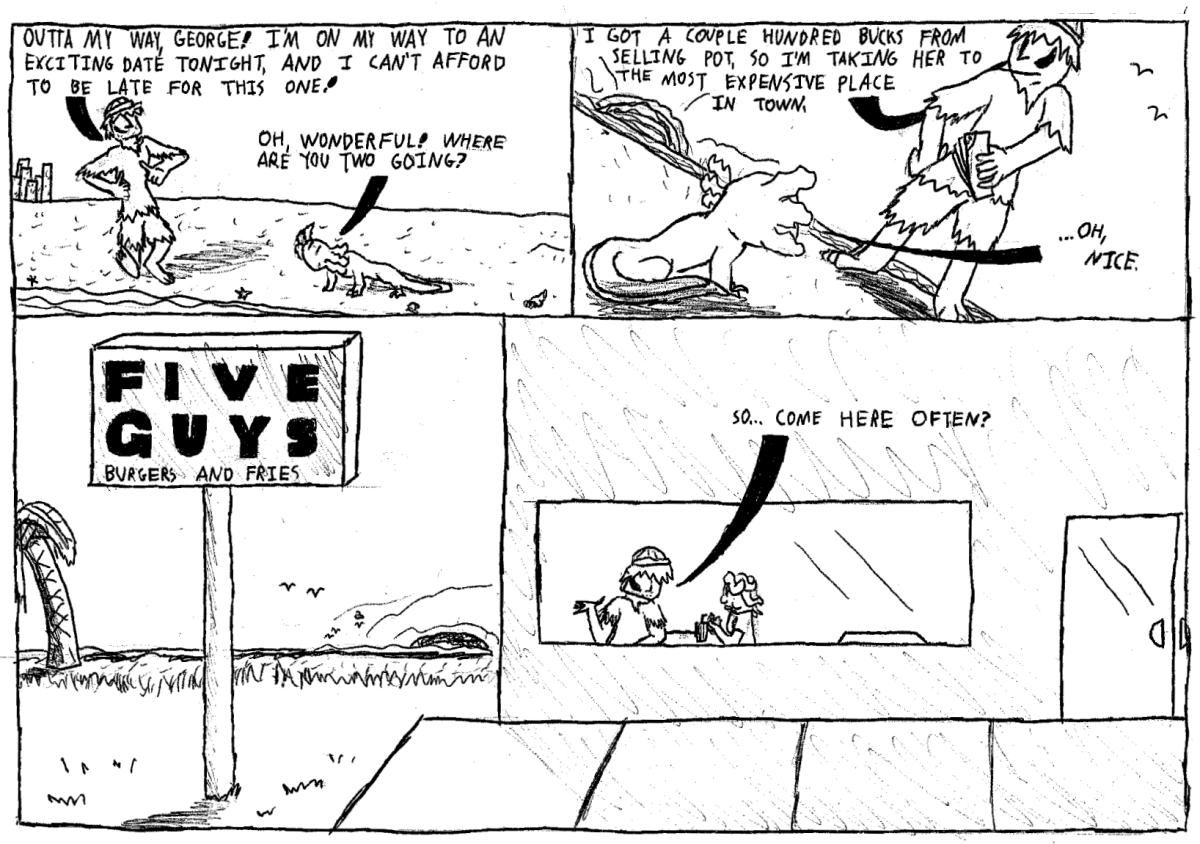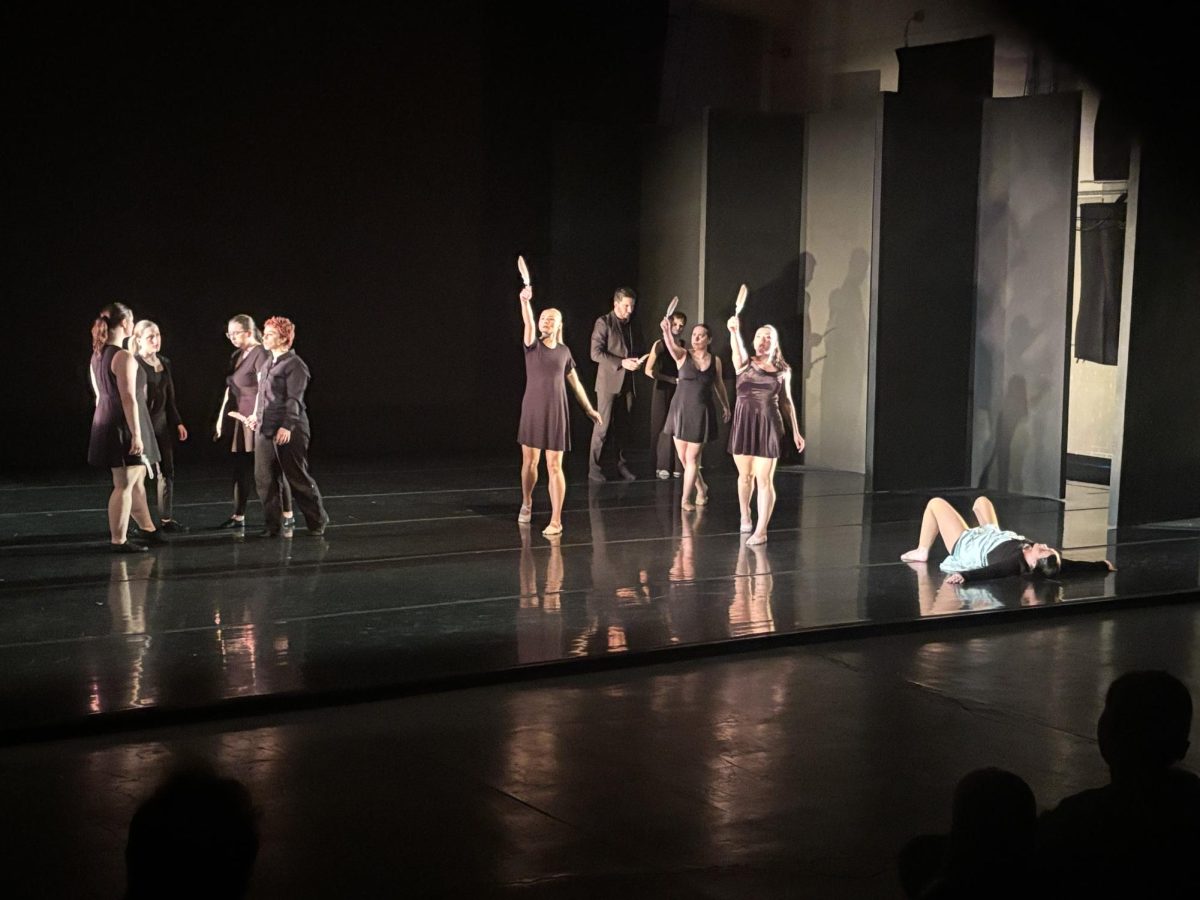
A circus of cartwheeling clowns and floating masks will mark the April 14 premiere of the Playshop Theatre’s production of “The Servant of Two Masters,” written by Carlo Goldoni.
The production of the 18th-century play is full of sight gags and offers opportunities for the audience to interact with the performance.
Anyone familiar with Charlie Chaplin, The Three Stooges and the Farrelly Brothers will immediately notice the similarities, according to the play’s director, Mark Cosdon.
“It’s clowning. It’s an utter farce,” Cosdon said.
He added that while the play does have a script, there are sections within the play that allow actors to improvise.
“For the most part, improvisation depends on how each audience responds to the performance,” Cosdon said. “That means aspects of the play, especially ad-lib bits, will change every night the show is presented.”
One of the biggest challenges for the actors is acting physically.
“For a physical comedy that requires us to wear masks, we are relying mostly on body expressions,” said actress Colleen McCaughey, ’13. “It’s difficult to express a smirk, or emotions like regret, through your body.”
Actor Steve Reaugh, ’11, said that in addition to three hour rehearsals five days a week, he spends extra time getting his body in shape for cartwheels and somersaults–a daunting task for anyone unaccustomed to the demanding physicality of such a role.
“At first I thought that by the end of the production I would look like Homer Simpson, with three hair strings sticking out,” Reaugh said. “I thought I would rip my own hair out, because improvisation means being quick on your feet.”
Both McCaughey and Reaugh said they have overcome the physical challenge of acting with a mask.
Reaugh added that Truffaldino, the character he plays, will not be afraid to approach audience members and start conversations during the show.
“He will come off the stage and address you directly, so beware if you’re sitting in the first few rows,” he advised.
Cosdon believes that although the Playshop production is an adaptation of the original play, it is one that Carlo Goldoni would certainly recognize and perhaps embrace.
“It allows for improvisation, but Goldoni’s play is at its heart,” he said.







